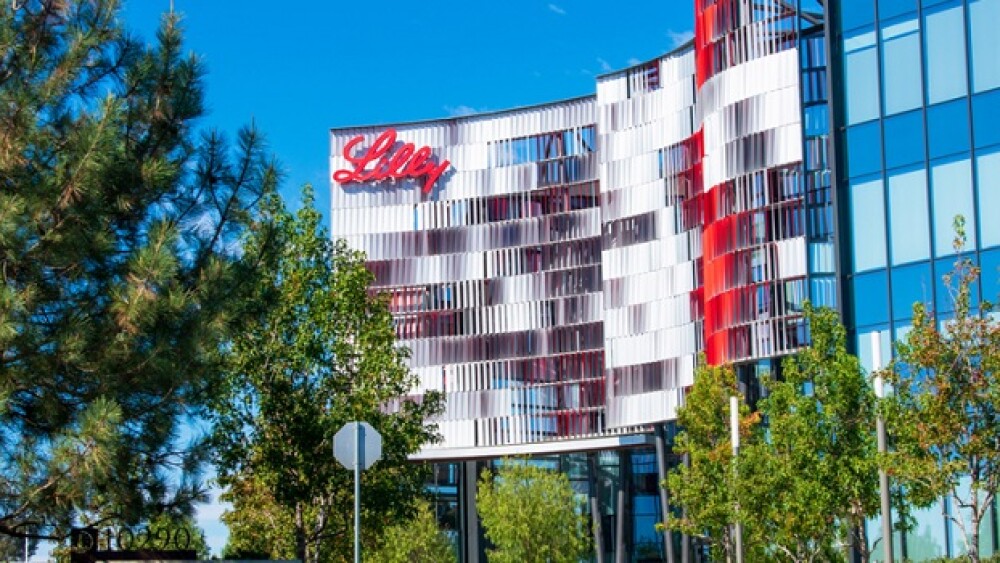Currently, women with breast and ovarian cancers have limited treatment options. Anixa Biosciences, ImmunoGen and IMV are working to change that.
Breast cancer and ovarian cancer affect millions of women and their families every year. The American Cancer Society estimates that about 19,880 women will receive an ovarian cancer diagnosis in 2022 and 12,810 women will die due to the disease. The statistics for breast cancer are even more staggering. About 287,850 new cases of invasive breast cancer are expected to be diagnosed this year, and approximately 43,000 women with a breast cancer diagnosis will die.
Currently, women with breast and ovarian cancers have few options. The majority of women diagnosed with these cancers are over the age of 50, and the primary treatment method is chemotherapy. Chemotherapy is, by and large, an aggressive form of treatment, and even young, healthy women often struggle with the short and long-term effects. While chemotherapy can be effective, it only works to get rid of cancerous cells during treatment. Provided the treatment is successful, it’s still possible that the cancer will return.
If a woman wants to prevent breast or ovarian cancer in the first place, she again has very few options. If she has a genetic history of breast cancer, she can elect to receive surgery to remove her breasts. This is known as a mastectomy. To prevent ovarian cancer, a prophylactic oophorectomy – an elective procedure in which the ovaries are removed – can be performed.
Women have struggled with these decisions for decades. But soon, they may not have to. Anixa Biosciences is working to develop vaccines to prevent both ovarian and breast cancer altogether.
The vaccines target retired proteins - proteins expressed during certain periods in a woman’s life that are re-expressed when she develops cancer. Anixa recently launched a Phase I trial of its breast cancer vaccine in patients who have completed treatment for early-stage, triple-negative breast cancer within the past three years and are currently tumor-free but at high risk for recurrence. The company is currently doing preclinical work for its ovarian cancer vaccine.
Dr. Pamela Garzone, Ph.D., chief development officer at Anixa, said these vaccines have the potential to change the way women approach these cancers.
“There’s a number of issues that women experience having breast and ovarian cancer, and I think this would alleviate that, so the impact is huge,” Garzone said. “It aids in the tough decisions they have to make when they’re confronted with these illnesses. It would be really important for them to have options as opposed to just having to undergo surgery.”
In a few weeks, Anixa expects to enter Phase I clinical trials for its CAR-T therapy for ovarian cancer. The therapy targets the follicle-stimulating hormone receptor (FSHR), which is expressed exclusively in those diagnosed with ovarian cancer. If successful, the therapy would only attack ovarian cells and avoid all others, avoiding the negative effects of other treatment options like chemotherapy.
Immunogen Sees Meaningful Results in Platinum-Resistant Ovarian Cancer
Anixa isn’t the only company working to provide an alternative to chemotherapy. In November of 2021, ImmunoGen released positive top-line data from its pivotal SORAYA trial of mirvetuximab soravtansine. This is ImmunoGen’s second attempt to get the U.S. Food and Drug Administration’s approval for the drug. In 2019, the trial was unsuccessful, and mirvetuximab soravtansine was ultimately rejected by the FDA due to an error in patient identification. This time, the company was determined to get it right.
The trial targeted women whose ovarian cancer had progressed and become resistant to traditional treatment methods. After patients are diagnosed with ovarian cancer, they usually undergo surgery to biopsy the tumor, followed by platinum-based chemotherapy. If the cancer progresses within six months of treatment, those patients are referred to as platinum-resistant. The SORAYA trial enrolled those patients who had previously been treated with Avastin, an anti-angiogenic therapy.
These patients typically had very low response rates to treatment. In the pivotal trial, these patients had a 32% response rate, which was more than double what Immunogen expected. Additionally, this response occurred without the typical side effects of chemotherapy like hair loss. Susan Altschuller, CFO of Immunogen, said her team was shocked by the results.
“It’s just really, really meaningful. It’s not an incremental improvement. It’s a huge step forward for platinum-resistant patients,” she told BioSpace.
Altschuller added that one of the reasons she took the CFO position was the company’s commitment to supporting women.
“I thought that it was very exciting to be part of an oncology-focused company that is not only launching our first product, but we’re also building our pipeline further,” she said. “But I also care about the people that I work with. The management team and the board are incredibly collaborative and supportive. We have 10 people on our management team, and seven are women and only three are men. So it’s not your typical executive suite at Immunogen.”
IMV is Shutting Down the Achilles Heel of Cancer
IMV, a Massachusetts-based pharmaceutical company, is working toward a similar goal using immunotherapy. The company’s lead asset, maveropepimut-S (MVP-S), is currently in Phase I and Phase II clinical trials for ovarian and breast cancer.
The drug is designed to target cancers that express survivin, a protein found in cancer cells that aids the cancer in avoiding or resisting treatment. IMV Chief Scientific Officer Dr. Jeremy Graff, Ph.D. said MVP-S works to awaken the patient’s immune response to ovarian cancer that expresses the survivin protein.
“If we focus the attention of the immune system on the survivin protein, then we’re effectively going after an Achilles heel of the cancer,” he explained. “We’re attacking a protein that cancer desperately needs. Unlike prior cancer therapies that may attack protein that cancer has but isn’t using, survivin is a protein that cancer cannot just stop making.”
If the trials go as planned, MVP-S could work to not only kill the cancer cells but prevent them from returning. Because the treatment is a form of immunotherapy, the immune system will remember the previous response. Graff compared the process to dominoes; once one falls, the rest follow.
“Once you start the process, the immune response can endure across time,” Graff said. “That’s very important. Cancers don’t just go away with a single shot. We need to attack cancers over and over and over again, to persistently make sure that we get every cancer cell in the body if we’re going to provide long-term disease control.”
IMV hopes to submit the study to the FDA for accelerated approval when phase II of the trial is complete.







